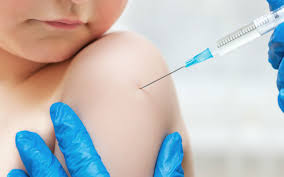Vaccines
Vaccines– Many parents and caregivers have doubt about vaccines. Some area unit frightened that vaccines can hurt their kid. Others don’t seem to be certain whether or not their kid very desires all the vaccines being given. Parents may additionally feel confused by on-line info and comments on social media. But the risks related to the vaccines Canadian youngsters receive area unit a lot of, much less than the risks associated with the diseases themselves.
Here area unit some common queries folks and caregivers have concerning vaccines.
Do vaccines really work?
Yes. All vaccine-preventable diseases have declined in countries with victorious vaccination programs. When vaccination rates area unit high, disease rates are low.
But, once vaccination rates begin to travel down (for example, when there is fear of vaccines or health care is disrupted during a war or other disaster) disease and related deaths always go up.
Vaccines defend youngsters WHO area unit insusceptible, and people close to them– like newborn babies too young to be vaccinated or others whose immune systems don’t work as well – by preventing the spread of disease.
Can vaccines wear out my child’s immune system?
No. Our system responds to terribly giant numbers of antigens (proteins and complicated sugars) that area unit found all around USA on a daily basis. Vaccines only add a few antigens to these numbers.
Are vaccines properly tested for safety?
Vaccines are safe and effective. Vaccines should convince be safe and effective at preventing the diseases they aim. Once a immunogen is in use, Canadian health authorities continue to monitor for side effects. Serious side effects of vaccines are very rare.
Do vaccines have side effects?
The chance of obtaining sick from a immunogen-preventable illness is way bigger than the terribly tiny risk of getting a heavy aspect impact from the vaccine itself.
• Some youngsters can have gentle pain and redness – typically with a touch of swelling – wherever the needle went into the arm or leg. If necessary, acetaminophen (such as Tylenol, Tempra, Panadol and others) will help ease the pain. But wait for at least 6 hours after vaccination before giving it since it could have an impact on how well the vaccine works.
• A mild fever is common after vaccination. A high fever will happen in young infants, particularly once the primary dose of a immunogen. In a few cases, fever might cause a feverish seizure. Febrile seizures don’t seem to be dangerous and don’t cause any brain injury. They happen more often in children whose parents or siblings have also had febrile seizures. They are also more likely to happen in children who already have epilepsy or a brain disorder.
• Fever combined with a rash may happen after the MMR, MMRV or varicella (chickenpox) vaccine.
• Anxiety concerning needles might cause fainting, especially in older children and teens.
Other aspect effects, including serious allergic reactions, are very rare. Children WHO have had a heavy aversion to a previous dose of immunogen (swelling of the face or lips, difficulty breathing or a drop in blood pressure) should not get that immunogen once more unless seen by a specialist or insusceptible in a very special clinic that may management severe reactions.
Can contagious disease immunogen or measles-mumps-rubella (MMR) immunogen cause syndrome or different biological process disorders?
No. there’s no scientific proof to support this claim.
Because signs of syndrome might seem round the same age that youngsters receive the MMR immunogen, some folks believe the immunogen causes the condition.
Much of the tilt over the MMR immunogen and syndrome came from a paper printed in 1998 that steered a link. But since then, the report has been found to be fraudulent and was withdrawn by the journal that published it. Many giant scientific studies round the world have found no link between the MMR immunogen and syndrome.
Also, there’s no proof to link the other vaccines to syndrome. The number of children with autism seems to have increased in recent years. This is as a result of the designation of syndrome currently includes youngsters with milder symptoms WHO wouldn’t are enclosed within the past.
There is conjointly bigger public awareness of syndrome, and more parents are seeking help. Scientists recently found a gene linked to autism.
Can pertussis (“whooping cough”) vaccine cause brain damage?
No. But, respiratory illness infection will cause seizures, brain damage and infant death.
Can vaccines cause SIDS (sudden infant death syndrome)?
No. several giant studies have found no link between vaccines and infant death. In fact, some studies found that babies who died of SIDS were less likely to have been recently vaccinated than babies who did not die.
Can vaccines cause type 1 diabetes?
There is no relationship between vaccines and type 1 diabetes. While the reason behind sort one polygenic disease isn’t best-known, there is evidence to suggest that viral infections may be important triggers for this disease in children.
Can vaccines cause asthma attack and other forms of allergic disease?
No. Studies show that vaccination does not increase the number of asthma cases and other allergic diseases in children.
Can vaccines cause cancer?
No. There is no evidence of a link between vaccines and cancer. In fact, two vaccines protect against cancer. Hepatitis B protects against cancer of the liver, and human papillomavirus (HPV) vaccine protects against cancer of the cervix and some other genital cancers.
Can vaccines cause Crohn’s disease or colitis?
No. there’s no association between vaccines and Crohn’s illness or the other sort of inflammatory viscus illness.
Can vaccines cause multiple sclerosis (MS)?
There is no proof that vaccines cause MS or perhaps flare-ups in a very person with MS. In particular,
hepatitis B and influenza (flu) vaccines have been shown to have no effect on symptoms or on the speed that symptoms progress in patients with MS. But, seasonal grippe infections are coupled with flare-ups of MS.

